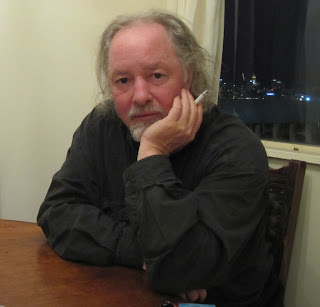Cigarettes and People
To CBC Sunday Magazine:
Thank
you sincerely for the piece you did with Joshua Knelman about Big
Tobacco and its cozy relationship with government. I plan to listen to
it again to see if I missed anything.
A few points to file away for the next time you run a tobacco story:
The industry had a deep connection to the Liberal Party decades ago.
Tobacco
farming was really profitable back in the 1970s. Our housemate Sylvie
once worked on a tobacco farm where she had the best wages and working
conditions of any of her jobs.
Years and
years ago I heard a health economist talking about tobacco. His take was
that tobacco-related medical costs were misleading: heavy tobacco users
typically died 20 years earlier and lung cancer moved fast and was
inevitably fatal. When you look at the medical costs that people total
up in that extra 20 years, every tobacco death is a net saving, and a
significant one. Not sure what story today's numbers would tell, if you
could get them.
Pensions: big savings here for
sure. My Uncle Walt died at 63 and never collected a nickel. My friend
Lorne died last year at 66, collecting only a year's worth of retirement
benefits.
The comparison to other consumer
goods was a little strained: convenience stores are full of things that
are not good for us. But it would be funny to see bottles of sugary
beverage with the label: Warning: long-term use can be a factor in
erectile dysfunction related to Type 2 diabetes.
Not
funny: tobacco death. My Uncle Walt was a shadow of himself the last
time I saw him, unable to even get in and out of a pickup truck. My dad
says that his brother was lying near death on oxygen and hooked up to
an IV . Walt said, "That's enough of this bullshit.", disconnected
himself and died.
As much as I have a
burning and lifelong hatred of tobacco and the criminals who built the
industry that killed my uncle, I am not one of those people who
stigmatizes smokers.
People who propose
this or that legislation often just don't get the neurochemistry and
psychology of nicotine and tobacco rituals. Like alcohol or weed, some
people find it a necessary anxiety and mood management tool. I've known
lots of people who had levels of stress that effectively locked them
into their addiction and an early death.
My
friend Lorne needed tobacco (and weed) to manage the side effects of his
psychiatric medication. But he was on disability with no money to
afford either habit so he became an illegal cigarette dealer, selling
singles, packs, and cartons to other folks in his situation. They simply
couldn't afford the legal and taxed cigarettes that had become an
integral part of staying sane and social while being poor, something the
smug rhetoric on the topic often disregards. The cigarettes came
through Native crime groups that seemed to be both profoundly dangerous
and untroubled by the law.
We used to
argue about tobacco, but not seriously. There was no point. Then about
three years ago his fitness level started to decline, so that eighteen
months ago he couldn't walk three blocks without stopping for a rest. I
visited him last summer, with me wearing a mask and sitting near an open
door. He was glad to see me, but he looked like crap. "Don't worry
about Covid, I'm more likely to have lung cancer." A couple of months
later, his difficulties got worse: he was blacking out. We had him
booked to go see Doctor Larry, and the next day I called to do my daily
phone check-in. No answer, so we called for a police wellness check. I
knew the score when two very nice officers showed up at our place asking
if I knew next of kin.
And just last month, Lorne's sister shared the autopsy report, which was pretty much as Lorne suspected.
So
keep up the good work. But Lorne would want me to remind you not to
forget that smokers are people. That was his key to selling cigarettes
and I think somehow it is the key to un-selling them.
Best of luck,
Hugh




Comments
Post a Comment